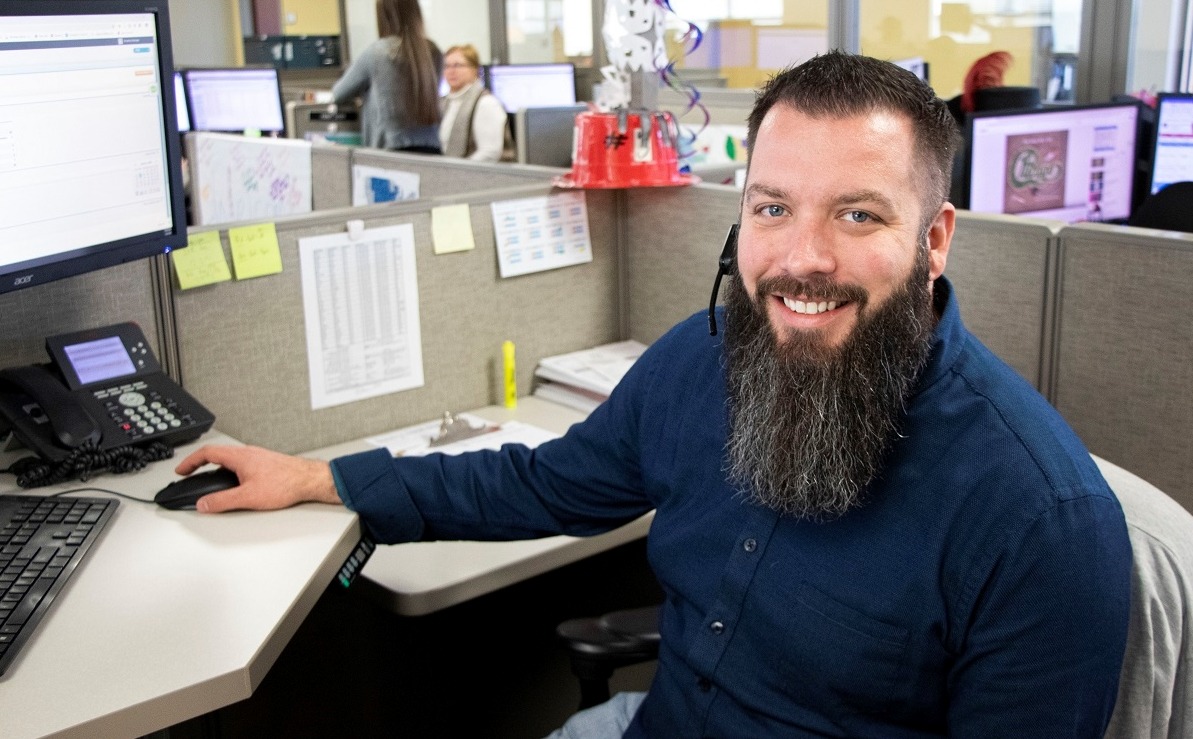
Why flexibility in the workplace is important
As we came into 2020, our goal was to ease into becoming a more flexible organization. Surprise! The coronavirus did a lot of the heavy lifting for us.
Now that we’re all working from home, it seems like a good time to take a step back and talk about why it’s important to increase flexibility in our workplace and how we as leaders can better embrace it.
As we’ve all seen over the last month, our people’s lives encompass juggling so much more than just their jobs. Our ultimate goal of flexibility is to provide the tools and leadership practices our employees need to win at work and at home.
Happy employees lead to better business results
We’ve known for a long time that our business success is directly linked to the success of our people-centric culture. That’s because happy and engaged employees are more productive, more collaborative and innovative, and less likely to leave a company. A recent University of Oxford study came to the same conclusion, finding that happy employees on average are 13% more productive.
One of the most powerful drivers of engagement is autonomy. The MAGIC model defines autonomy as “the power to shape your work and environment in ways that allow you to perform your best.” Giving our people the flexibility to do their work when and where they want creates autonomy and is a powerful engager, eventually leading to better business results.
But embracing flexibility means letting go of the outdated command-and-control leadership style that businesses used to be built on. It starts by believing that employees want to work hard and do the right things to help themselves and your teams succeed. This allows us to lead with a more trusting and supportive employee relationship. If we don’t lead this way, we’ll struggle to keep our top-performing people, let alone entice a new generation of smart and innovative employees to join our team.
What is flexibility?
Flexibility isn’t a one-size-fits-all approach. It’s as fluid as the word itself. For some, flexibility means being able to work from home whenever they’re feeling slightly under the weather, a loved one is sick, or when their kid’s school is closed. For others, it’s working remotely, partially or full time, or working non-traditional business hours like nine-nines or early in/early out.
Leading with our core values means we are adaptable, considerate of other’s needs, trust each other, and assume positive intent. Your role is to look at flexibility through the lens of our core values and work with your people to make it safe for them to find a flexible work arrangement that is beneficial to them and to the team.
Dos and don’ts
Though we don’t know exactly when, we’ll return to the office at some point. Now is a great time to start thinking about how you can better embrace flexibility moving forward.
Here are a few dos and don’ts to help make you successful.
DO:
- Trust your people
- Lead with empathy
- Create a safe space for your people to bring up a flexible schedule option (or any other concerns they have)
- Set realistic expectations (and effectively communicate those expectations with your people)
- Trust your people (seriously, it’s that important)
- Even when we’re back in the office, use collaboration tools like Zoom and MS Teams for meetings
- Be open to change
- Partner with each team member to create a plan that is beneficial to them and the team
DON’T
- Be resistant to change
- Tell people they can’t work from home once we’re back in the office
- Demean or diminish people’s concerns
- Micromanage your team
- Make it unsafe for people to ask for more flexibility
What to expect from your people
Flexibility is a two-way street. Your people also have a responsibility to live our core values to make a flexible schedule work. Here’s what you should expect from your people.
They should:
- Take accountability
- Be available and present
- Be transparent about their availability
- Follow through on commitments
- Openly communicate with their team and leaders
- Keep their Outlook calendar updated
Become a flexibility champion
CHG is committed to flexibility and giving our people the autonomy they need to get their work done in the way that works best for them, and it takes all of us working together to make that happen now and when we’re back in the office. You play an essential role in the engagement of your people, and flexibility is a key driver of their engagement.
Post a comment